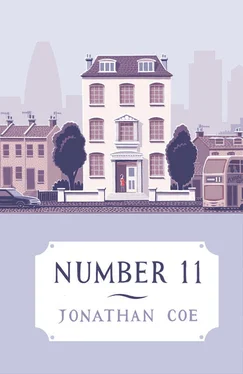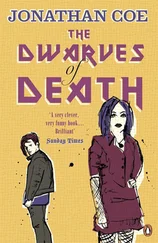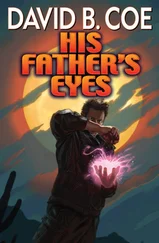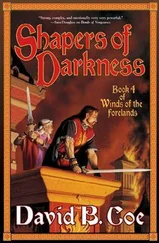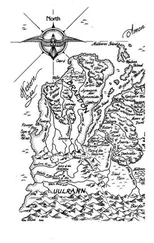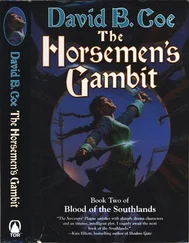‘Anyway, I know I did the wrong thing. I should have told the benefits office what I’d made. I suppose I thought I could get away with it: I’d been paid in cash and anyway … you know, it was only nine hundred quid. Not such a huge deal, in the scheme of things, I thought. I gave half the money to Mum because she really needed a new cooker: hers hadn’t been working properly all winter. Still, it was enough for Josephine. She wrote a piece about it for her paper …’
‘I know — I saw it. Your mum sent me the link.’
‘… and then the judge decided to make a big example out of it and give me the maximum sentence. So here I am.’
Once the story was told, neither of them spoke for a while. There was nothing Rachel could do to make things better: nothing she could do at all, at that moment, other than reach across and squeeze Alison’s hand again. Alison didn’t respond at first; and her words, when they came, were slow and faltering.
‘One thing about being in here: you get time to think. Especially during those bloody weekends. I mean, there are only so many episodes of Casualty and Pointless Celebrities you can watch. So I’ve been thinking a lot about Josephine, and why she decided to do that to me.’
Rachel shrugged. ‘To sell papers, I suppose.’
‘Sure. And it’s done her no harm at all — Mum told me she’s got her own column now. Weekly slot. So somebody must have liked it. But you know, why me? I know I ticked all her little hate boxes. Black? Yes. Lesbian? Yes. Disabled? Yes. On benefits? Yes. I was getting Disability Living Allowance, Housing Benefit, all sorts … But what had I actually done , to make her hate me so much?’
‘She’s probably just … fucked up herself. Had a crap childhood or something.’
Alison paused, considering this, and said: ‘I got a lot of letters, after the story ran.’
‘Letters of support, you mean?’
‘A couple of those, but mostly they were … well, horrible. Agreeing with Josephine. Blaming me. I mean, I don’t really think anyone saw the fraud itself as that big a deal, so they weren’t blaming me for what I’d done , so much. It was for … It was for being what I am. Who I am.’ She smiled, took a Kleenex out of her pocket and blew her nose violently. ‘But there’s not much I can do about that, is there?’
*
If Rachel wanted to know how her day could become more upsetting, she was about to find out, on her journey home.
The train had just pulled into Didcot Parkway, and she was staring out of the window at the towers of the power station, remembering the village of Little Calverton, and the picturebook thatched cottage Laura and Roger had bought there, with their dream of creating an idyllic childhood for their son. And while she was lost in this memory, her phone rang, tugging her out of it. She answered the call: it was Faustina, and she was dreadfully upset, almost unable to speak through her tears.
‘An accident,’ she seemed to be saying. ‘At home.’
It took Rachel a while to realize that by ‘home’ she was referring to the Marshall Islands. It took her even longer to understand what had happened.
‘A bomb ? In her garden ? Oh Faustina, that’s terrible … unbelievable.’
It seemed that Faustina’s granddaughter, one of her six or seven grandchildren, had been playing in the back garden when she had come across a seventy-year-old hand grenade. These islands had been used as an American military base in the Second World War, as part of the campaign against the Japanese, and there was still, incredibly, a large amount of unexploded ordnance lying around. Faustina’s granddaughter — her second daughter’s daughter, only seven years old — had picked up the grenade and was tossing it around like a tennis ball when it exploded and killed her instantly.
Rachel’s immediate impulse was to advise Faustina and Jules to fly home at once. Only as an afterthought did she ask: ‘What does Lady Gunn say?’
‘She’s not answering her phone. I think she’s on a plane. New York. She’s gone for two weeks. She’ll organize some charity ball, she said.’
‘Well, I’m sure she’d agree.’
Faustina explained that the journey back home was a long and difficult one, involving at least two changes of plane and stopovers in Seoul or Kuala Lumpar or Manila. Even if they flew out of Heathrow this evening, it would take them about thirty-six hours to get there. The cost was enormous: it would eat up most of their savings. But Rachel could see that they had no choice.
‘And the children,’ Faustina said. ‘Somebody has to look after Grace and Sophia.’
‘That’s OK,’ said Rachel. ‘I can look after them. Really. I mean, it’s just a question of feeding them and making sure they’re clean and putting them to bed. I can do that. Don’t worry about it. You go and pack, Faustina. Get ready and go.’
And indeed, when Rachel got back to the house at five o’clock that evening, the housekeeper and her husband were sitting in the kitchen with their coats on, ready to depart, waiting only for her return. She embraced them both, gave Faustina a kiss pregnant with feeling, then walked with them out through the debris and saw them safely through the hoarding. They trudged off together in the direction of the nearest Piccadilly Line station, holding hands, the weight of their shared suitcase pulling Jules’s body off balance to the left. Rachel went back inside and realized that the house was quieter, vaster and lonelier than ever.
She called Madiana to tell her what had happened. It was lunchtime in New York by now and she seemed to be eating in a noisy restaurant. At the back of Rachel’s mind had been the hope (the absurd hope, she quickly realized) that Madiana herself would come home to look after her children for the next couple of weeks. But she had no intention of doing that. She told Rachel that she trusted her and knew that she could rely on her and she called her an angel and many other borderline-affectionate terms. She told her to make use of both halves of the house for the time being and to treat the place as her own.
*
Rachel keyed in the code to the magic door on the second-floor landing and passed through the mirror into the haunted, enchanted kingdom that was the Gunns’ living space, a space that was probably big enough to house twenty people but for the moment was home only to two unattended nine-year-old girls.
It was not quite silent on this side of the mirror. The noise of the television was coming from the girls’ playroom.
Rachel found them watching a rerun of Friends together on a satellite comedy channel. One of the female characters was explaining to one of the male characters where all the female erogenous zones were and what was the best way to bring a woman to orgasm. Grace and Sophia were watching with grave, impassive expressions; but then they never did laugh much.
‘I’m sorry I’m late for your lessons today,’ she said. ‘I’ve been to see a friend of mine in the country. Also, as you probably know, Faustina and Jules have had some bad news and they’ve had to go home very suddenly. They’ll probably be gone for about a fortnight.’
Again, it was hard to tell whether this information really affected them in any way. Nothing seemed to get through to them, somehow: even the news that the family dog had been fatally wounded had not seemed to upset them, particularly. The more time she spent with these strange, emotionless girls, the more Rachel felt that she was dealing with two of John Wyndham’s Midwich Cuckoos.
‘I think we’ll forget about work for the moment, anyway, I’ll go down and find something we can have for dinner,’ she said.
Читать дальше
